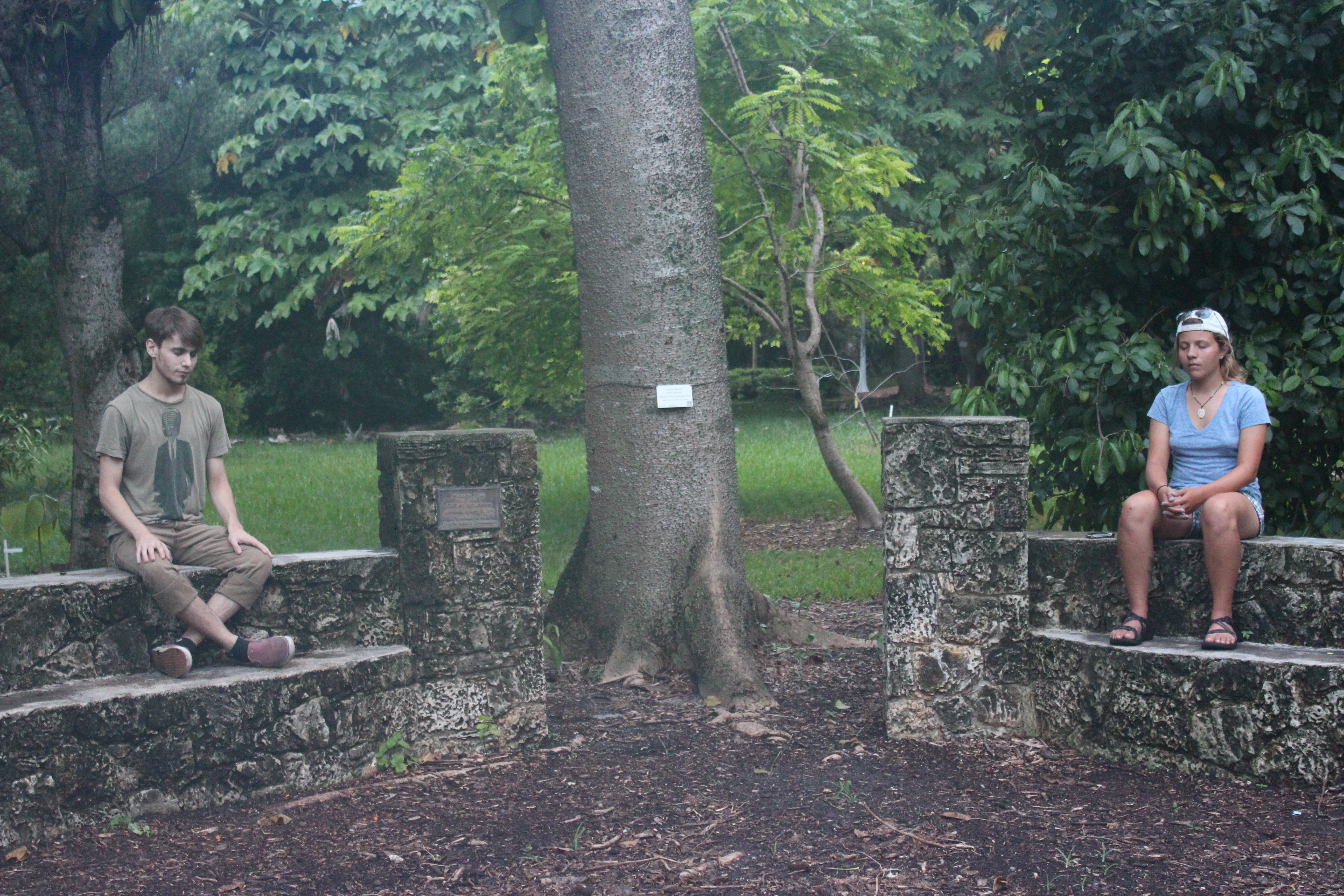In the sprawling vegetation of the John C. Gifford Arboretum, the Miami Mindfulness club hosts Meditation Shots on the North end of the University of Miami’s Coral Gables campus, every Tuesday, Wednesday and Thursday at 7:30 p.m.
Miami Mindfulness is a club that focuses primarily on mindfulness meditation. But it also offers a wide range of activities such as yoga classes, camping trips and social gatherings. The meditation “shot” is a brief 30-minute daily meditation that helps exercise the brain on a regular basis. It is also a chance to relax and forget about academic stress for a short period of time. These meditations follow a structure based on the book “Search Inside Yourself” by Chade-Meng Tan, a software engineer and motivator at Google. The book is about a mindfulness-based training program offered in the offices of Google.
As the sun starts to set, a group of 10 people gather in the stone bench of the Arboretum. Everyone is asked to introduce themselves, talk about their favorite class so far, and to share a dream they have. There are engineers, graphic designers, psychology majors and even an alumnus who decided to join. In the middle of a half circle sits Julie Kolakowski, a sophomore who is the “Search Inside Yourself” guide; she gives a brief introduction about mindfulness meditation.
“Have you ever meditated before?” she asks the audience. Then there is a small discussion about the people who have done it and what kind of meditation they have put into practice. Next she asks what they think “mindfulness” means.
“I think it means to be intentionally relaxed and alert at the same time” says Cat Cutrone, one of the audience members. Agnes Archibong chimes in, “it means to live in the present moment.”
After everyone shares their own interpretation of the word, Kolakowski reads the definition from the book: “Mindfulness means paying attention in a particular way: on purpose, in the present moment, and non-judgmentally.”
Then 20 minutes are set on the timer and the meditation begins. The first step is to find a position in which you are both relaxed and alert. You can close your eyes or keep them open, whatever is more comfortable for you.
The main objective is to focus on one’s breath. You can either pay attention to its sound, the way it fills your lungs or the sensation of air entering your nostrils. Kolakowski starts reading prompts from the book: “We will begin by sitting comfortably both relaxed and alert, whatever that means to you. Let us now take three slow and deep breaths to inject both energy and relaxation into our practice.” After that, she explains how the breathing should continue normally; attention fully focused on it. She suggests to take a “grandmother attitude” when noticing your breath.
“This is an attitude of kindness, curiosity and humor. The attitude of a grandmother when regarding her grandchildren,” she explains. “If at any time you feel distracted by a sensation, thought or sound, simply acknowledge it, experience it, and very gently let it go. Bring your attention back to your breath. If it can’t be let go, let it be.”
There is complete silence after that. Only the little bugs flying around and the sound of the wind passing though the trees can be heard. When time is up the alarm makes a beeping sound, and Kolakowski indicates that it is time to open for everyone to open his or her eyes when ready.
The closing of the session is a small reflection on everyone’s experiences.
“I got distracted at some point but it was really good, I feel very relaxed and peaceful,” says Sarah Hertz, one of the audience members. To end the session there is another discussion, but this time about the importance of meditation.
Five minutes are set for the final meditation. Everyone closes their eyes and focuses on their breathing. Being in the present moment; sitting with no agenda. When it is over, they open their eyes and the exercise is officially over.
No experience is required and anyone can join whenever they like. When school becomes overwhelming and assignments bog down the brain, taking this half hour break can make a big difference in your day.






